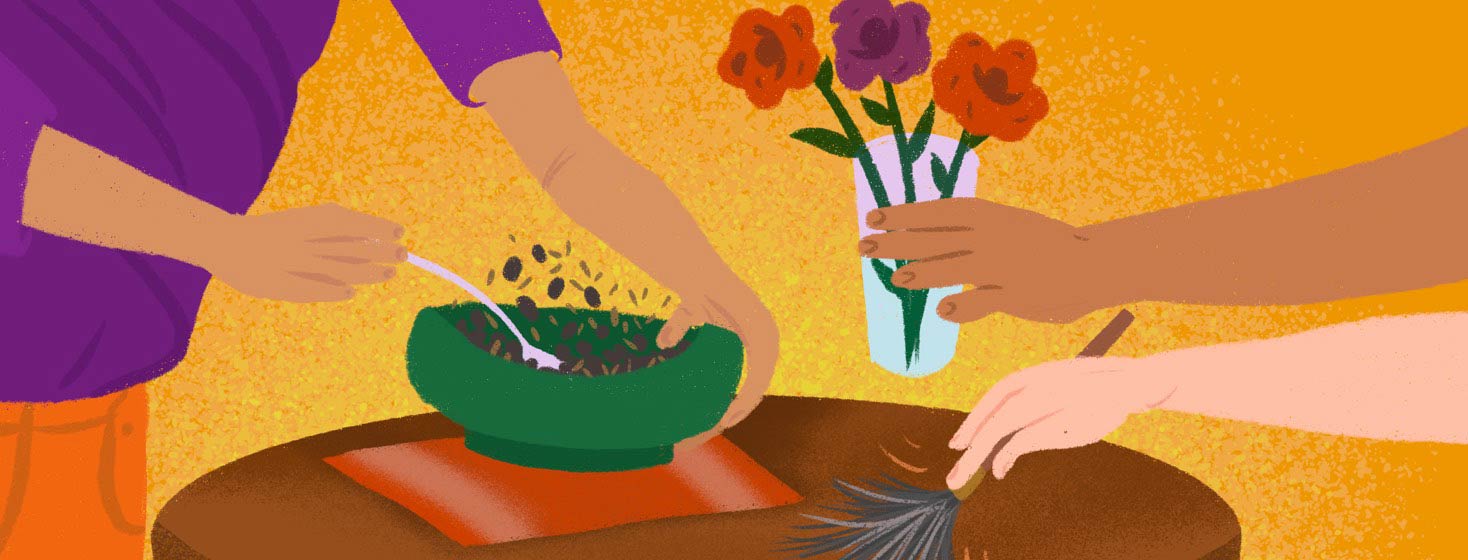Caregiver Help: Accepting, Asking, and Articulating
I came out of my mother's womb crying "I can do it myself!" and have been extremely independent since my first breath. After my 53-year-old husband, Peter was diagnosed with early-onset Alzheimer's, I quickly realized that caring for a loved one with dementia is not a one-person job.
It takes a village.
Gather your village
A village consists of people with grit and compassion. The ones who can tough it out with you when it gets rough. I've learned that it's not uncommon for friends and even family members to be absent or disappear completely.
I suppose everyone grieves differently and respecting that is easier for me than being upset about it. Focusing on the people who are present was more helpful.
Accepting help with caregiving
As many caregivers find, it is not easy to accept help. "Let me know if you need anything" the villager will say but asking was extremely rare. However, I slowly started to change my perspective and began accepting their offers. I taught myself to respond with, "Actually..." If I just said that one word, I was then committed. Even if I didn't have something on the tip of my tongue, saying that one word gave me a moment to think. Not only did it give me pause, but it made me practice the art of accepting help with caregiving.
Alzheimer's and asking for help
My next brave step was initiating the ask, which was even harder for me. Feeling there was some stigma attached to asking someone for assistance, I hesitated. Perhaps I felt it made me look weak. Additionally, asking for help from family and friends had a pang of certain guilt associated with it.
Putting those feelings aside, there are times when I cannot be with my husband and someone else needs to step in. At first, I only called for things like the lady doctor, the dentist, or a hair appointment. Sometimes, I couldn't bring myself to ask for the hair appointment and I'd take Peter along. The guilty feeling associated with doing something relaxing for myself while I interrupted someone's day to watch my husband gnawed at me.
A friend told me something that changed my perspective completely. She said, "People want to help, they just don't know how." And she was right.
I started to think about how I feel when I help someone. That makes me feel good, and useful, and purposeful. Other people surely must feel that way as well. So, from then on, I practiced harder and took it one step further.
Articulate what you need
By the time dinner rolls around, I'm a tired caregiver. Paused are the days of being excited about trying a new recipe and shopping for all the ingredients and delighting in eating it. Not gone, paused.
And so, I heard it, "Let me know if you need anything." And I responded, "Actually, next time you make dinner, could you make 2 extra portions for our freezer?"
It felt awkward and cumbersome, but her face lit up and she responded with, "Absolutely! I can drop it off tomorrow!" It still takes practice, but eventually, it got easier to accept, ask and articulate what we need.
Have you found yourself accepting more help with caregiving? Tell us about your experience in the comments below, or share your story with the community.

Join the conversation